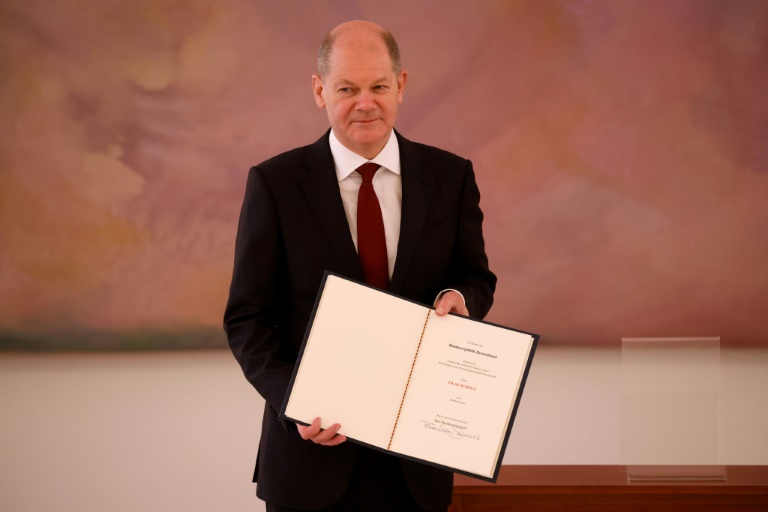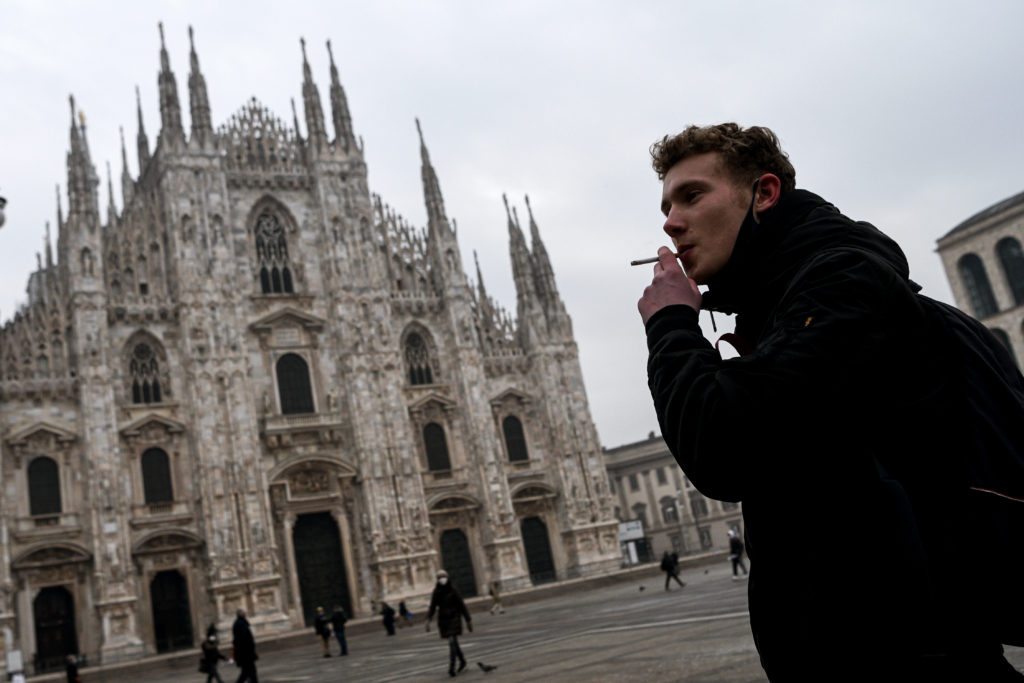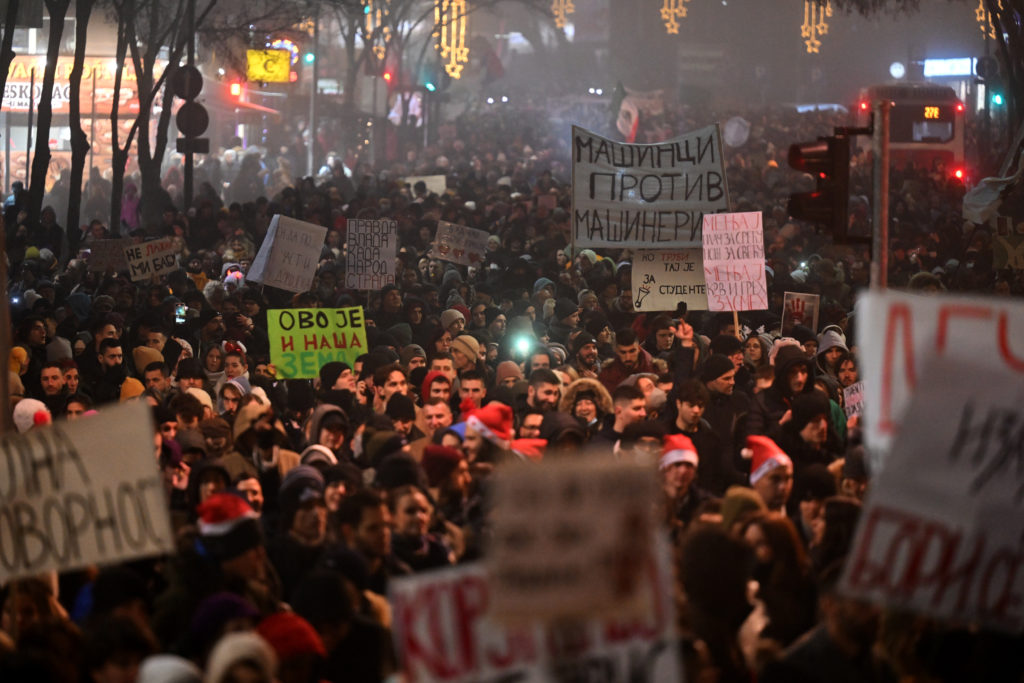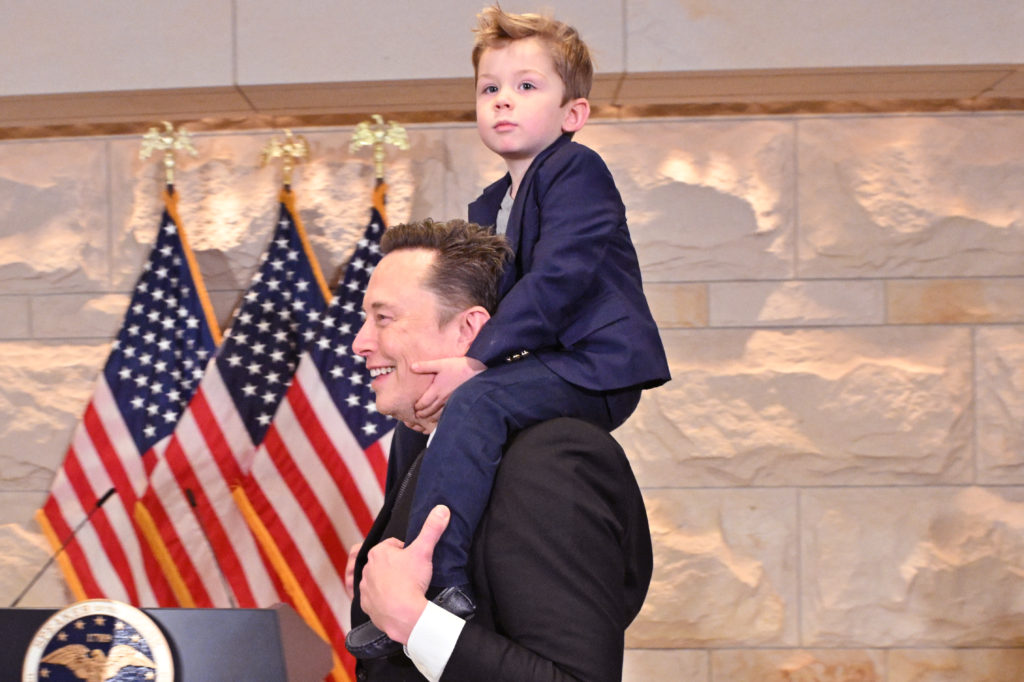Olaf Scholz became Germany’s new chancellor on Wednesday after 16 years with Angela Merkel at the helm, pledging his centre-left-led coalition would offer a “new beginning” for Europe’s top economy.
Scholz was officially named the country’s ninth post-war leader by President Frank-Walter Steinmeier, who urged him to “ensure that the pandemic does not keep us firmly in its grip for another year” as a fourth wave of the coronavirus outbreak rages.
The former finance minister, who won 395 of the 707 votes cast in the Bundestag lower house, has vowed broad “continuity” with the popular Merkel while making Germany greener and fairer.
“It will be a new beginning for our country,” Scholz pledged as he officially assumed the office from Merkel and thanked her for her lengthy tenure.
“I will do everything to work towards that.”
Merkel wished Scholz luck as chancellor, urging him to “take this office and work in the best interest of our country”.
She then left her office by motorcade for the last time as her staff looked on, applauding.
“I came to see Merkel for a last time,” said Enrique Velazco, 30, part of a small crowd gathered outside the chancellery. “She stood for stability for the world.”
– ‘Dare for more’ –
Scholz led his Social Democrats from a deep poll deficit to victory in the September 26 election.
The 63-year-old, who turned emulating Merkel in style and substance into a winning strategy, forged Germany’s first national “traffic light” coalition with the ecologist Greens and the liberal Free Democrats, nicknamed after the parties’ colours.
Their four-year pact sealed late last month is called “Dare for More Progress”, a hat tip to Social Democratic chancellor Willy Brandt’s historic 1969 pledge to “Dare for More Democracy”.
The alliance aims to slash carbon emissions, overhaul decrepit digital infrastructure, modernise citizenship laws, lift the minimum wage and have Germany join a handful of countries worldwide in legalising marijuana.
US President Joe Biden congratulated Scholz, saying he “is looking forward to building on the strong ties between our two nations”.
French President Emmanuel Macron pledged that “we will write the next chapter together” while EU chief Ursula von der Leyen said she looked forward to cooperation for a “strong Europe”.
Scholz’s office announced his first official visit would take him to Paris and Brussels Friday for talks with Macron, von der Leyen and NATO chief Jens Stoltenberg.
China’s Xi Jinping said Beijing was willing to work with Scholz to “promote bilateral ties to a new level” while Vladimir Putin said Russia was offering “constructive ties” with the new government.
In his first TV interview as chancellor, Scholz warned of possible “consequences” for the contested Nord Stream 2 gas pipeline if Russia invaded Ukraine amid a troop build-up, stressing “the inviolability of the borders” must be respected.
– Gender balanced –
The new foreign minister, Annalena Baerbock, has pledged a tougher line with authoritarian states such as Russia and China after the business-driven pragmatism of the Merkel years.
Greens co-leader Baerbock is one of eight women in Germany’s first gender-balanced cabinet.
“That corresponds to the society we live in — half of the power belongs to women,” Scholz, who describes himself as a “feminist”, said this week.
Scholz and his team promise stability just as France braces for a bitterly fought presidential election next year and Europe grapples with the enduring aftershocks of Brexit.
However, a vicious fourth Covid wave has already put the incoming coalition to the test.
More than 103,000 people have died with coronavirus in Germany while new infections have surged since the weather turned cold, filling intensive care units to breaking point.
Scholz has thrown his weight behind making jabs mandatory to get the pandemic under control, as Austria has done.
– ‘Lessons of history’ –
Merkel, 67, Germany’s first woman chancellor, is retiring from politics after four consecutive terms, the first post-war leader to step aside of her own accord.
Macron tweeted his gratitude to the outgoing leader.
“Thank you, dear Angela, for never forgetting the lessons of history, for having done so much for us, with us, to move Europe forward,” he said.
She leaves big shoes to fill, with large majorities approving of her leadership.
Despite being from a rival party, Scholz tapped into that well of popular support in his bid to succeed Merkel while pledging to tackle the gap between rich and poor that widened under her.
Meanwhile, Greens supporters are banking on billions flowing toward climate protection and renewable energy, even as the government pledges to return to a no-new-debt rule by 2023.











